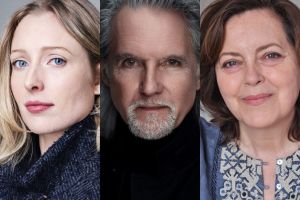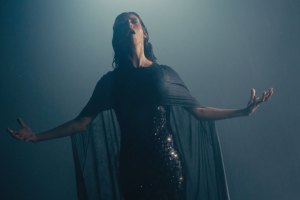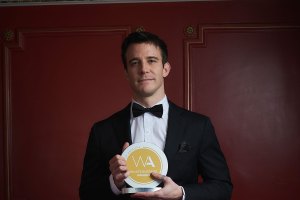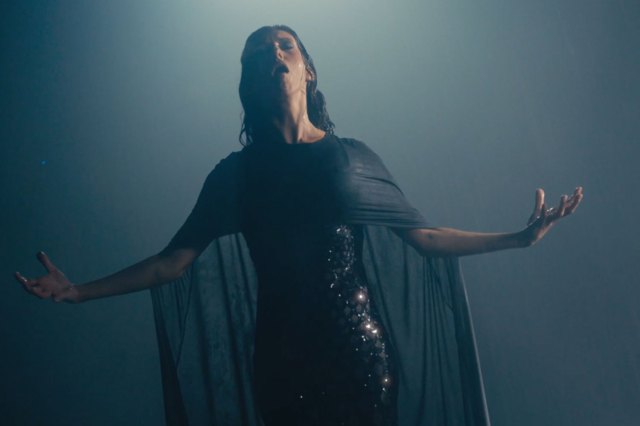Rory Mullarkey, playwright and opera librettist
It’s a hectic summer for this busy writer of plays and operas
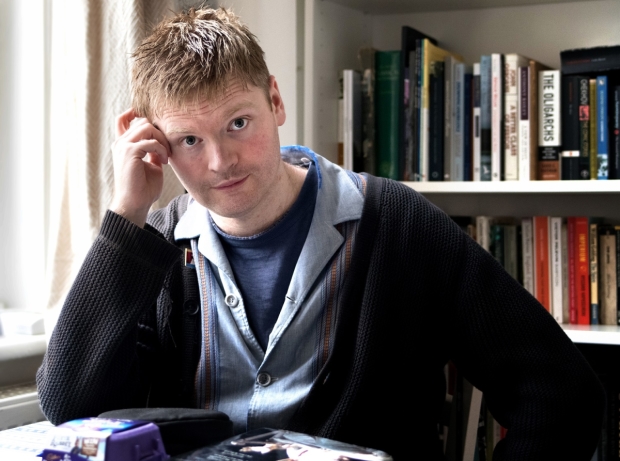
© Bill.Knight
With his latest play Pity due next week at the Royal Court and a new opera, The Skating Rink, about to open at Garsington Opera, 31 year-old Rory Mullarkey is not so much on a roll as sitting pretty in a gourmet sandwich of art forms. "I've got five shows in this year, which is quite mad. As well as this play and two operas I've done a translation of The Cherry Orchard for Bristol and Manchester, and written a National Youth Theatre show for the Hong Kong Youth Arts Festival.
"The Royal Court is my favourite theatre in the world. It's a privilege to work somewhere where they put such emphasis on allowing writers to have breadth and freedom and the boldness to try something a bit different."
Mullarkey has previously said that he only started to be accepted by companies like the Royal Court when he stopped obeying rules. "There's a sense in which I think everybody just finds their own timbre and tone. Once I stopped following what I thought I was supposed to do, and once my work felt as though it was coming from me unfiltered, then I reckoned I'd found my own voice. I don't write very realistic work; I'm more interested in asking questions through ideas, and in the language I use, rather than delving into a naturalistic psychology.
'There are no rules in libretto writing'
"I started learning Russian as a teenager and fell in love with all the great writers. Gogol is my favourite, and I suppose it's his influence on Dostoyevsky – the fantasmagoric and how hysterical and exaggerated things can be – that's most inspired me. And yet I also adore the detailed realism of Chekhov."
Mullarkey's libretto for The Skating Rink marks his second opera of 2018 after Coraline with Mark-Anthony Turnage. Did he instigate either project?
"No. I was a hired hand on both of them, although they originated in different ways. With Coraline I worked with a dramaturg to mould it the way Mark (Mark-Anthony Turnage, the composer) wanted it, whereas with David Sawer on The Skating Rink it was almost the reverse. We structured it very precisely together so that David knew pretty much exactly what he'd be getting. There are no rules in libretto writing; it depends on what the composer wants as a collaboration.
"Coraline is a book and text with such a following, and the young spectators for whom it was geared probably weren't coming to the story for the first time. When you'dealing with something so dominant you want to produce work that serves that. The novel itself is so full of events that it was quite difficult to create a world where you could do anything other than tell the story quickly. There wasn't a great deal of room for musical expansiveness.
'Coraline is so full of events that it was quite difficult to create a world where you could do anything other than tell the story quickly'
"A lot gets said about words in opera libretti, whether there are too many or not enough. I learned a good lesson when I sent a poem to a composer friend and asked her whether it would set well to music. She answered: ‘It's its own music. There would be no point in setting it. The syllables and the vowel sounds, the consonants – it doesn't need anybody else's input to bring it to life'."
How did The Skating Rink come his way? "I did an opera for the composer Joanna Lee at the Young Vic a few years ago, and on the strength of that David Lan, the artistic director, suggested my name to David Sawer when he was looking for a librettist. He'd already chosen The Skating Rink, but I read Roberto Bolaño's source novel and loved it. It was such a smart choice.
"It was crucial for me to be inspired by the book the way he was. It's strange, it's extreme and with the intensity of its murder mystery and love story it suits itself perfectly to opera.
"Once David had hired me to work with him, he, Stewart Laing the director-designer and I sat down together to discuss how we could structure it. It's a book in short chapters told in turn by three narrators, and I was really interested in the idea of an unreliable narrator – something that's subjective from the character's point of view. So we decided to make it more formal than the novel, splitting it to three acts with each act presented by one of the book's narrators. The audience sees it as a linear narrative but it's told from three separate points of view."
'My dad used to play lots of Puccini in the car'
Garsington's beautiful perspex theatre is a challenging space during daylight, but Mullarkey believes that that may actually work in the opera's favour. "Because it is the same story three times. The audience won't get lost and Stewart says there's a daylight feel to the first half of the opera which will work well before the dinner interval, while the second half is mainly set at night time.
"David Sawer wanted it to be single-voice-led – not built on arias and recitatives but more fluid – so I sketched something out to show him how it might feel, then he gave me notes. It's a heightened lyrical style that's guided by what he wanted to do stylistically. We had used rhyme in Coraline but David didn't want any in The Skating Rink except at moments where characters themselves actually ‘sing'."
Mullarkey evidently has a clear understanding of operatic form. Where did that come from? "My dad used to play lots of Puccini in the car, and when I was at school my French teacher ran a lunchtime opera club. One or two lunchtimes a week we'd watch grainy old videos of Salome or whatever. I used to sing and play the oboe too.
"I went to the Academy at the Aix-en-Provence Festival in 2013 and 2014 along with 15 other people from all over Europe, and there were writers, designers and directors who'd only worked in theatre before plus composers who had never collaborated with writers. They paired us up to work together and they gave us tickets to see all the operas at the festival. Afterwards we'd stay up all night drinking and discussing what we'd seen. I learned so much from that experience."
















